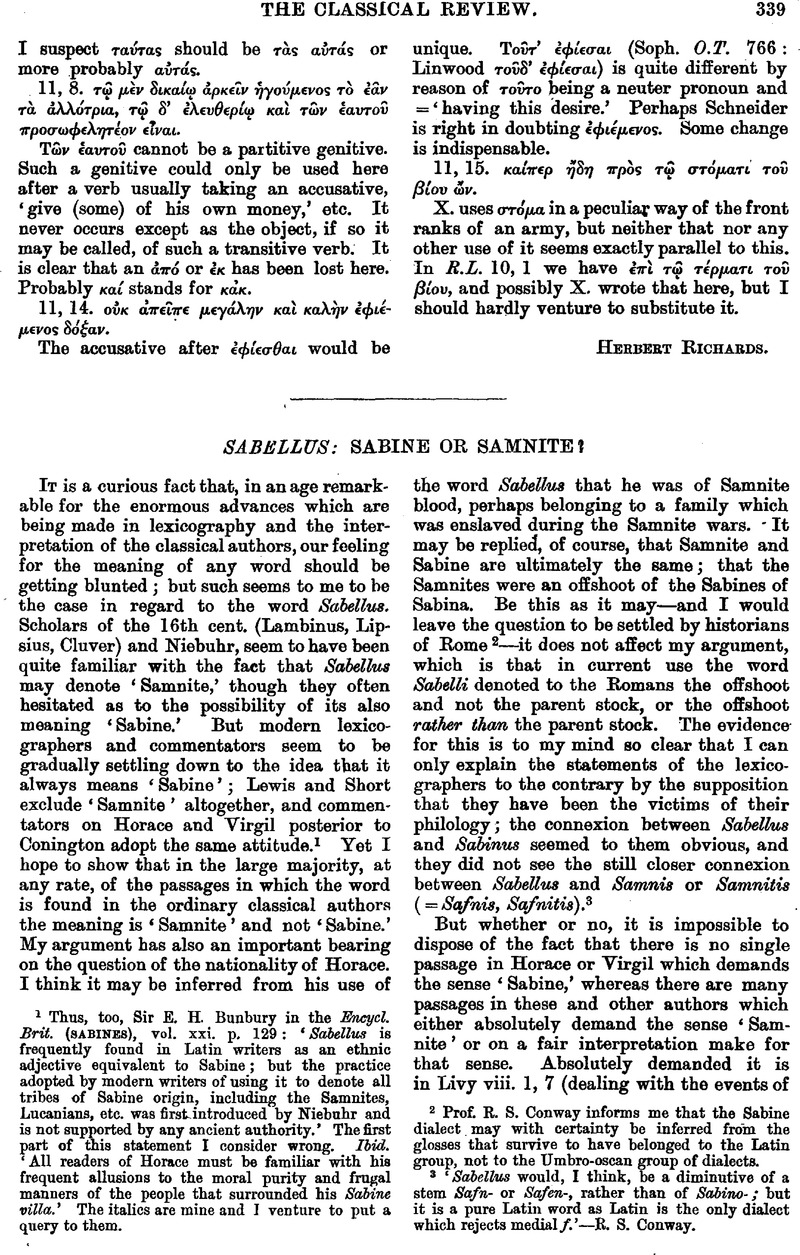No CrossRef data available.
Article contents
Sabellus: Sabine or Samnite?
Published online by Cambridge University Press: 27 October 2009
Abstract

- Type
- Review Article
- Information
- Copyright
- Copyright © The Classical Association 1897
References
page 339 note 1 Thus, too, SirBunbury, E. H. in the Encycl. Brit. (Sabines), vol. xxi. p. 129Google Scholar: ‘Sabellus is frequently found in Latin writers as an ethnic adjective equivalent to Sabine; but the practice adopted by modern writers of using it to denote all tribes of Sabine origin, including the Samnites, Lucanians, etc. was first-introduced by Niebuhr and is not supported by any ancient authority.’ The first part of this statement I consider wrong. Ibid. ‘All readers of Horace must be familiar with his frequent allusions to the moral purity and frugal manners of the people that surrounded his Sabine villa.’ The italics are mine and I venture to put a query to them.
page 339 note 2 Prof. R. S. Conway informs me that the Sabine dialect may with certainty be inferred from the glosses that survive to have belonged to the Latin group, not to the Umbro-oscan group of dialects.
page 339 note 3 ‘Sabellus would, I think, be a diminutive of a stem Safn- or Safen-, rather than of Sabino-; but it is a pure Latin word as Latin is the only dialect which rejects medial f.’—R. S. Conway.
page 340 note 1 If Horace included the Sabines, we have an instance of the word in a classical author in the Niebuhrian sense.
page 340 note 2 A man who owns a Scottish moor does not for that reason call himself a Scot!
page 340 note 3 So at least thought Niebuhr, Hist. of Rome, p. 91 ‘The Marsians, Pelignians, Samnites and Lucanians called themselves Savini [Safinim?]; this is certain at least about the Samnites, from the denary coined during the Social War.’ How far more modern research confirms the connexion between the Marsi and the Samnites I do not undertake to say.




